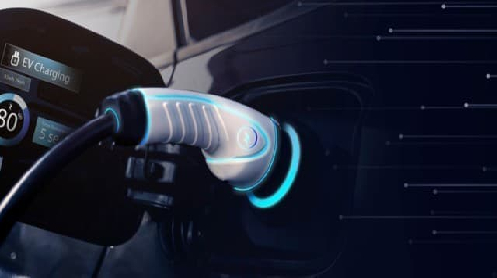Electric vehicles are taking off. As a fundamental piece of any feasible pathway to arriving at worldwide emanations focuses on, the EV business is right now the focal point of a monstrous worldwide speed increase, with gigantic sponsorship from both general society and confidential areas. However, there is a significant issue with this very quick development.
Albeit electric vehicles are significantly helpful for the climate when contrasted with regular burning motors, they represent a significant danger to the climate in alternate ways. EV batteries depend on limited metals and minerals, for example, lithium and cobalt, which should be mined from the earth, which generally conveys negative ecological externalities. What’s more, when EV batteries reach the finish of their life, large numbers of them end up in landfills, where they discharge poisons including weighty metals.
At the point when you take a gander at the size of the business, this is a colossal issue. Arriving at net no emanations by mid-century will require an electric vehicle armada of more than 300 million vehicles by 2030, and 60% of new vehicle deals should be electric models. As of now, electric vehicle deals are on a sharp vertical pattern, with deals almost multiplying somewhere in the range of 2020 and 2021, as per figures from the Global Energy Organization.
For electric vehicles to arrive at their full green potential, battery reusing is a fundamental piece of an EV’s life cycle. In any case, the business is simply beginning to adapt to this situation. Starting around 2019, only 5% of lithium-particle batteries in the US were being reused, as per the Division of Energy. The greater part of the EV batteries out and about now were not intended to be reused, and making great arrangement and framework for reusing programs is precarious.
Batteries contrast broadly in science and development, which makes it challenging to make proficient reusing frameworks. What’s more, the cells are frequently kept intact with intense pastes that make them hard to dismantle,” makes sense of a 2021 report from Science. “That has added to a monetary hindrance: It’s frequently less expensive for batterymakers to purchase newly mined metals than to utilize reused materials.” Even organizations that will dish out and are effectively looking for utilized and reused batteries to introduce in their vehicles for more prominent life-cycle maintainability can’t track down them. Also, they will most likely be unable to do as such for one more 10 years, as they trust that the reusing business will track down its legs.
While reusing innovation has significantly lingered behind the remainder of the EV area, significant headway is at last being made. The innovation for battery reusing is quickly improving as scientists adapt to the situations of EV battery science and development. In scholastic circles and in troublesome new companies, significant additions are being made to make the reusing system more reasonable and practical.
In the US, battery reusing has picked up a ton of speed as a significant piece of the environmentally friendly power energy progress. The Biden organization as of late granted $2.8 billion to 20 homegrown battery makers, with a major subsidizing center around reusing. Besides, the Division of energy has been crediting billions to battery reusing firms including Redwood Materials and Li-Cycle.
The confidential area has additionally gotten progressively associated with battery reusing, as a few significant automakers have manufactured organizations with reusing firms. Honda as of late declared a coordinated effort with Climb Components to “lay out a shut circle reusing framework for batteries, in which materials from end-of-life batteries are reused in new batteries,” as per detailing from The Slope.
Reusing EV batteries isn’t beneficial – yet – yet it’s getting more reasonable constantly. Redwood Materials says that “in time, as end-of-life pack volumes increment, the planned operations cost will diminish so batteries will become resources that will assist with making EVs more practical and reasonable over the long haul.”
Battery reusing plants, from Nevada to South Carolina and Alabama, are presently springing up cross country. Rising interest for reusing administrations and a swell in monetary help from government programs and the confidential area have set the battery reusing industry up for a significant development spray. Furthermore, the timing couldn’t be better. As electric vehicle deals keep on developing quickly, we frantically need the reusing business to get up to speed and keep speed to stay away from a significant battery squander emergency.







